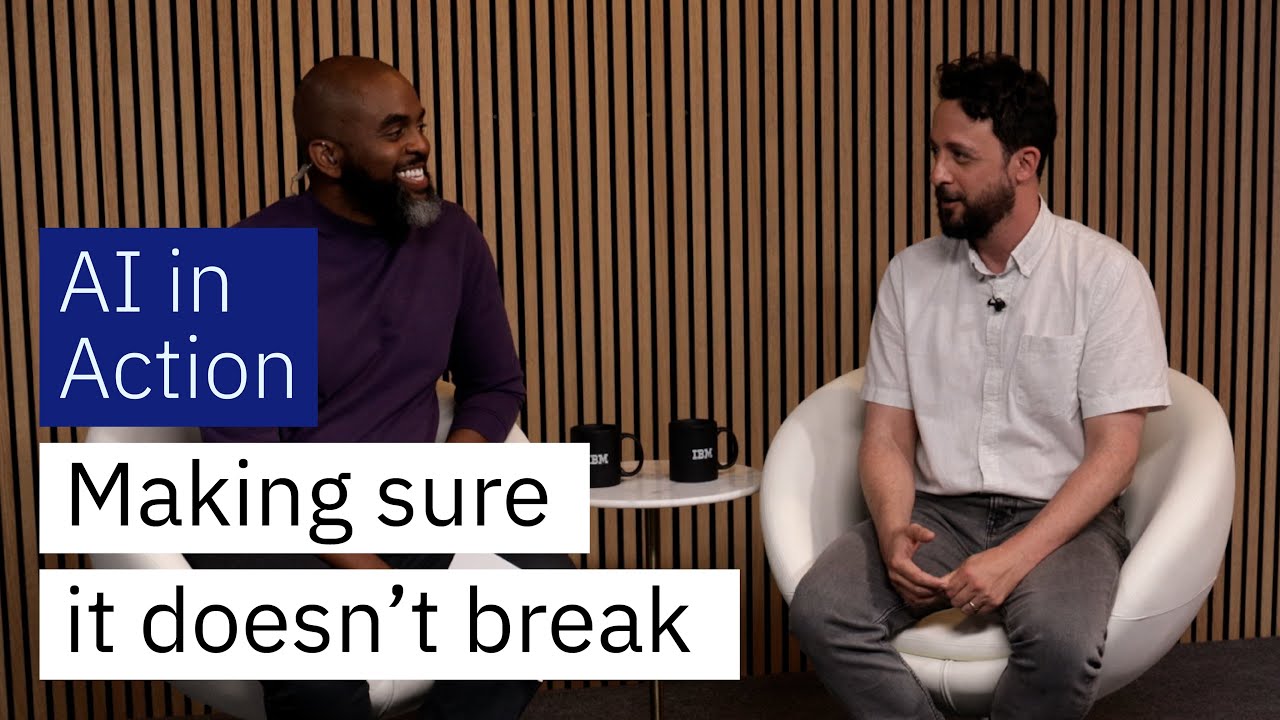The video discusses the impact of generative AI on modernizing legacy code, emphasizing how it allows developers to focus on creative tasks by automating repetitive coding processes while maintaining human oversight to ensure code comprehensibility and maintainability. Experts Miha Kralj and David Levy highlight the importance of foundational programming knowledge and the need for organizations to establish guidelines for effectively integrating AI tools in software development.
In the video, the hosts discuss the transformative impact of generative AI on application development, particularly in the context of modernizing legacy code. With the increasing pressure on programmers to produce faster and more efficiently, the conversation highlights the challenges of reprogramming millions of lines of code without introducing errors that could jeopardize entire systems. The episode features insights from Miha Kralj and David Levy, both experts at IBM, who explore how generative AI can streamline the development process while ensuring that existing applications remain intact during upgrades. Explore the podcast → AI in Action Podcast | IBM
Miha compares the evolution of software development to the changes in car manufacturing, where robots now handle most tasks, allowing humans to focus on creating and managing those robots. Similarly, developers are shifting from writing code directly to crafting prompts that instruct generative AI to produce code. This shift allows developers to offload repetitive tasks, such as documentation and variable naming, to AI, enabling them to concentrate on more creative and complex aspects of programming.
The discussion also addresses the potential pitfalls of relying too heavily on generative AI. While AI can generate code efficiently, it may produce solutions that are difficult for humans to understand or maintain. Miha warns that pushing AI to optimize code can lead to convoluted structures that are not user-friendly, making debugging and collaboration challenging. The importance of maintaining human oversight in the coding process is emphasized, as developers must ensure that the generated code remains comprehensible and maintainable.
David elaborates on the practical applications of generative AI in transforming legacy systems, such as COBOL, into modern programming languages like Java. He explains how developers can use integrated tools within popular IDEs like Visual Studio Code to facilitate this transformation while keeping the human element in the loop. The conversation highlights the necessity of understanding the underlying principles of programming to effectively leverage AI tools, as blindly using AI-generated code without comprehension can hinder learning and skill development.
Finally, the hosts discuss the governance and monitoring challenges associated with using generative AI in coding. They emphasize the need for organizations to establish clear guidelines and processes to ensure that AI-generated code can be reliably reproduced and maintained. The episode concludes with key takeaways, including the importance of foundational programming knowledge, the role of generative AI as a supportive tool rather than a replacement for human coders, and the necessity of using approved AI options to mitigate risks in software development. AI news is moving fast. Keep your business ahead with updates about AI advancements, strategies and expert perspectives. → https://ibm.biz/BdKnT3
The opinions expressed in this podcast are solely those of the participants and do not necessarily reflect the views of IBM or any other organization or entity.
